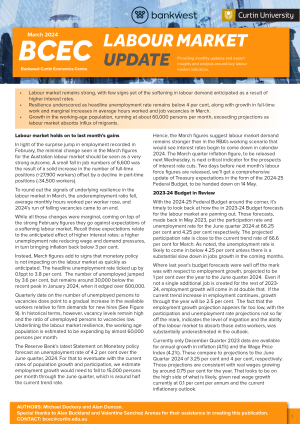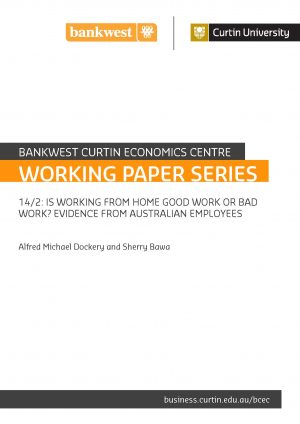Is Working From Home Good Work or Bad Work?
There is concern that workers are finding it increasingly difficult to balance work and family life and face growing time stress. Working from home is one form of flexibility in working arrangements that may assist workers to juggle work and non-work commitments. However, it may also provide a pathway for greater intrusion of work into family life and for added work-related stress. Around 17% of Australian employees work some of their usual working hours from home, and one-third of these do so under a formal agreement with their employer. Based on evidence from the Household, Income and Labour Dynamics in Australia Survey, these proportions seem to have remained surprisingly stable over the past decade. Overall, the ability to work some hours from home is seen by employees as a positive job attribute that provides flexibility to balance work and non-work commitments and this is particularly so for employees who have a formal agreement to work from home. However, working from home is also associated with long hours of work and the evidence provides grounds for concern that working from home does facilitate greater intrusion into nonwork domains of life through this channel.




